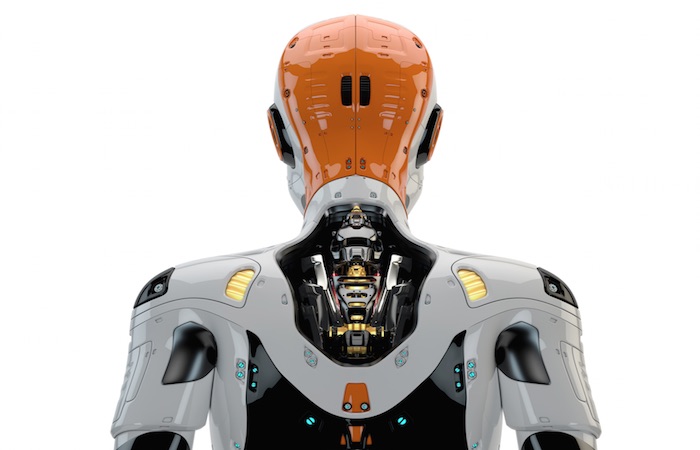
Something for the weekend: Musculoskeletal conditions, such as back ache or joint pain, can be a reoccurring health and wellbeing issue for employers and their staff, particularly in occupations that involve manual tasks, such as heavy lifting. US-based home improvement and hardware organisation Lowe’s has introduced a new tool to support its employees’ wellbeing as they lift and move products around its stores: wearable robotic suits.
Four exosuits, which have been designed in conjunction with Virginia Tech, are currently being tested by the stocking team at Lowe’s Christiansburg store. The lightweight, wearable suits are designed to reinforce proper lifting techniques, and make lifting and moving heavy items easier in a bid to protect against muscle fatigue caused by repetitive movements.
The suits achieve this by absorbing energy and then delivering it back to the exosuit-wearing employee. This means that staff members do not have to exert as much force to complete certain movements, such as picking up a bag of concrete or a five-gallon bucket of paint.
The exosuits use carbon fibres in both the back and legs, which when stretched taut, act like a bow ready to shoot an arrow. This mechanism helps employees to more easily spring back up after picking up a heavy object.
The idea for the robotic suits came from Lowe’s Innovation Lab, the organisation’s disruptive technology hub, and its work with science fiction writers. The Lab envisioned using technology to provide employees with special superpowers to help maximise their performance.
The suits will be piloted over the coming months to assess their physical impact. Lowe’s will also conduct an employee engagement study to see how the exosuits affect employees’ experience at work.
Kyle Nel, executive director at Lowe’s Innovation Lab, said: “Our employees ensure our stores are always ready for customers. As a way to support them, we found a unique opportunity to collaborate with Virginia Tech to develop one of the first retail applications for assistive robotic exosuits.”
Dr Alan Asbeck, assistant professor in the department of mechanical engineering, assistive robotics laboratory at Virginia Tech, who worked on the exosuits, added: “Over the past couple of years, human assistive devices have become an area of interest. But, our technology is different, not only because of the suit’s soft, flexible elements, but because we’re putting the prototype in a real world environment for an extended period of time.”
Here at Employee Benefits, we think this certainly gives a whole new meaning to technology in the workplace. Being office-based, our heavy lifting requirements are a little thin on the ground, however the exosuit would definitely come in handy for our coffee run…